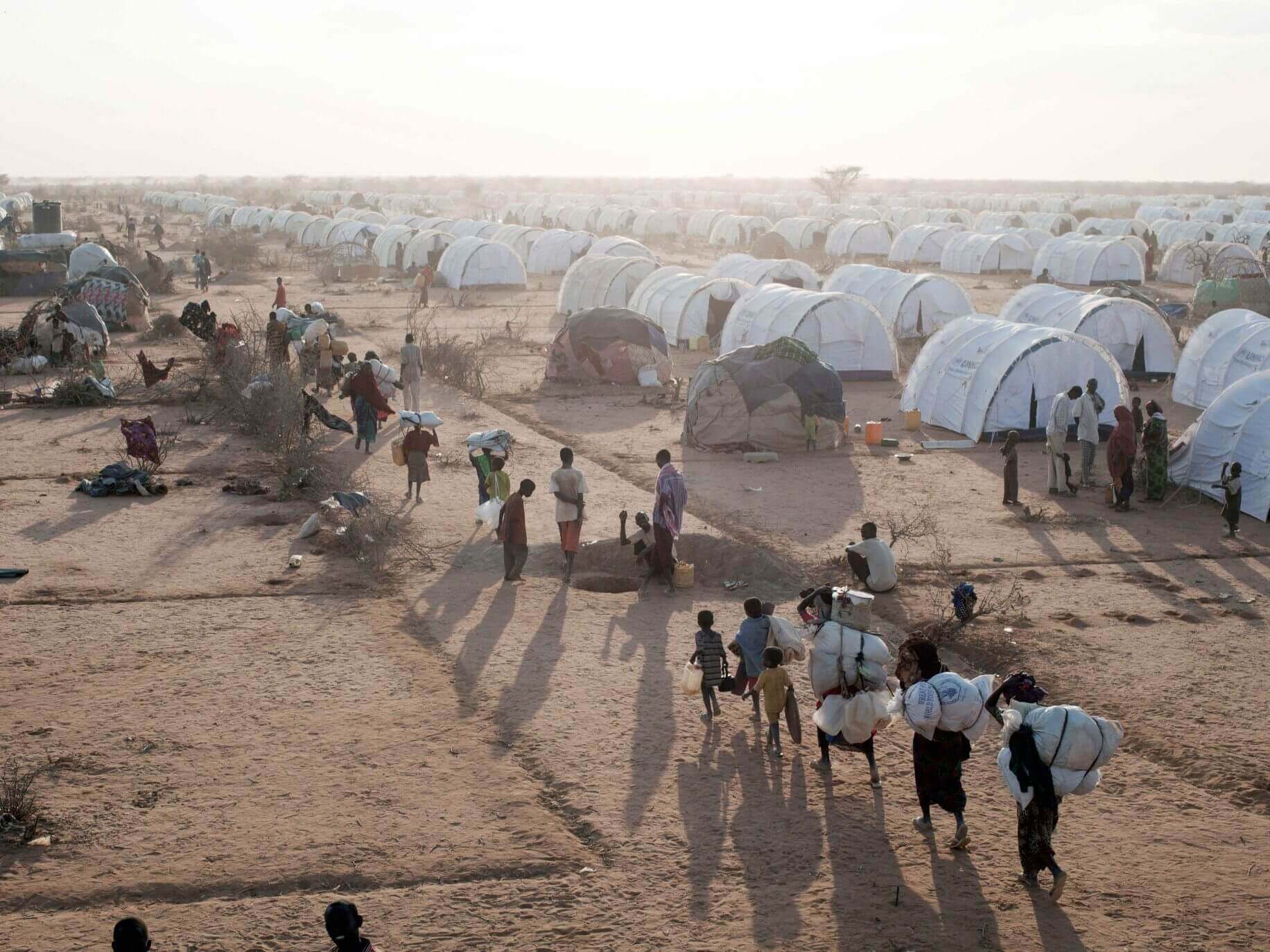The Kenyan government has ordered the United Nations to close both of its refugee camps in the country within 14 days, arguing that the camps have become a safe haven for militants from the Somali terror group al-Shabab. If the deadline is not met, the government has said that it will take it upon itself to expel Somali refugees.
Interior Minister Fred Matiang’i said, “We must strike a balance between Kenya’s international obligations and her domestic duty. We do have a domestic responsibility to protect Kenyans.”
One of the camps, the Dadaab camp, which lies in the eastern Garissa County was formed in 1991, and some refugees have lived there for over 20 years. It is now the third-largest refugee camp in the world and houses 210,556 refugees, of whom 202,381 are from Somalia. The overcrowded nature of the camp has meant that many of the refugees now live outside of the camp’s official boundaries.
The second camp that has been ordered to close is the Kakuma camp, which lies in the north-west of the country. It was established in 1992 as a temporary asylum shelter that now has its own market and businesses. It houses over 194,000 refugees and is operated by the Kenyan Department of Refugee Affairs and the United Nations High Commissioner for Refugees (UNHCR).
In fact, the decision to close the Dadaab camp has been deliberated over for a few years now. However, in 2017, Kenya’s high court overruled the government’s decision to close the camp, saying it was “not fair, discriminatory, and arbitrary”. At the time, the government responded to the decision by delaying the closure of the camp by another six months. In 2019, the government once again made moves to close the camp, despite refugees refusing to be repatriated to their countries of origin.
The UNHCR has responded to the Kenyan government’s order by lamenting that the “decision would have an impact on the protection of refugees in Kenya, including in the context of the ongoing COVID-19 pandemic”.
The concerns cited by the government aren’t entirely misplaced, given that terror attacks in both 2013 and 2015 involved refugees from the camp. However, to punish hundreds of thousands of people for the crimes of a few has been described by rights groups as needlessly discriminatory. In fact, 56% of the refugees at the Dadaab camp are children, illustrating the potentially disastrous impact that this decision could have.
It has been speculated that the Kenyan government’s decision is rooted in its ongoing spat with the Somali government over disputed maritime borders and allegations of political interference by Somalia.
The two countries are currently having their maritime boundary dispute heard by the International Court of Justice (ICJ) after Somalia brought its complaint before the court. However, Kenya has thus far refused to participate in the hearing due to the perceived “procedural unfairness” and the influence of “third party commercial interests”. Both countries have competing claims for an area in the Indian ocean that has a number of crucial oil and gas resources.
Aside from maritime disputes, the two countries have also been embroiled in diplomatic disputes in the recent past. In December, Somalia recalled its ambassador to Nairobi and demanded that Kenya’s ambassador to Mogadishu return home, accusing Kenya of interfering in its internal affairs in Jubaland and Somaliland. Somalia contends that Kenya is arming and training Jubaland rebels along their shared border to attack the Somali National Army, a claim that was rejected by the IGAD in January due to lack of evidence.
Given that a number of the refugees in Kenya are from Somalia, it is thought that the Kenyan government’s decision to order the UN to close its two refugee camps in the country is an extension of ongoing tensions between the two countries.
Kenya Orders UNHCR to Close Both of its Refugee Camps in the Country, Citing Terror Threat
One of the camps, the Dadaab camp, which lies in the eastern Garissa County was formed in 1991, and some refugees have lived there for over 20 years.
March 25, 2021

SOURCE: WORLD FINANCE
